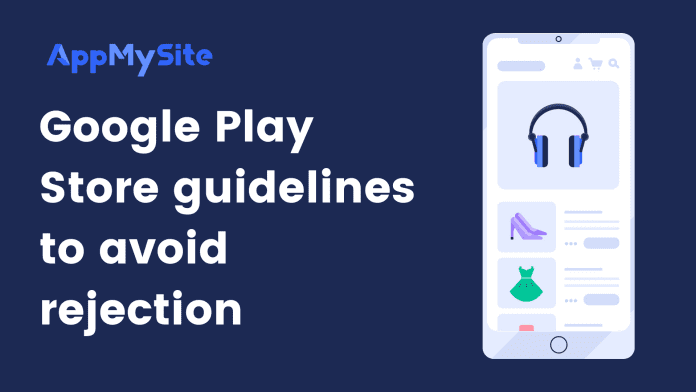Let us explore the guidelines to submit your app to the Play Store.
Keyword Optimisation
- Ratio: While it’s important to use keywords to be more discoverable and to rank well on Play Store, stuffing in too many keywords can be one of the biggest reasons for app rejection. Write valuable information about the features and functions of your app to the end-user.
- Relevance: Make sure you use keywords that are relevant to your app in your description. Adding misleading keywords can also lead to rejection.
Spam policy
Study the spam policy laid out by Google to ensure your content is perfect from every perspective.
Performance
- Bug & links: Your app should be of high level in terms of functionality and performance. Thus, you need to ensure your app is bug-free. Make sure there are no broken links as well.
- Request permission: If your app will be accessing information from another apps on the user’s device, it’s important that they are informed and taken approval before it does. Create a prompt to request permission from the user.
- Interface: Apps with a smooth interface have higher chances of getting accepted. Make sure that you build an easy-to-use mobile app.
- Functionality: Mobile apps that offer very less value and are meant for a small purpose are likely to get rejected. Thus, the app must offer some kind of core functionality to its users.
- Duplicity: Offering an exceptional solution is important. If your app is a copy of another app that exists on the Play Store, there is a good chance you will be rejected on account of duplicity.
- Your app must offer unique features that are not exhibited in any other app. Take ideas from popular apps, but never copy another app completely.
- Professional: It is important that your app offers a professional environment. The title and description should also be drafted in an utterly professional language. The content that your app contains; images, videos or text, should not be unprofessional.

